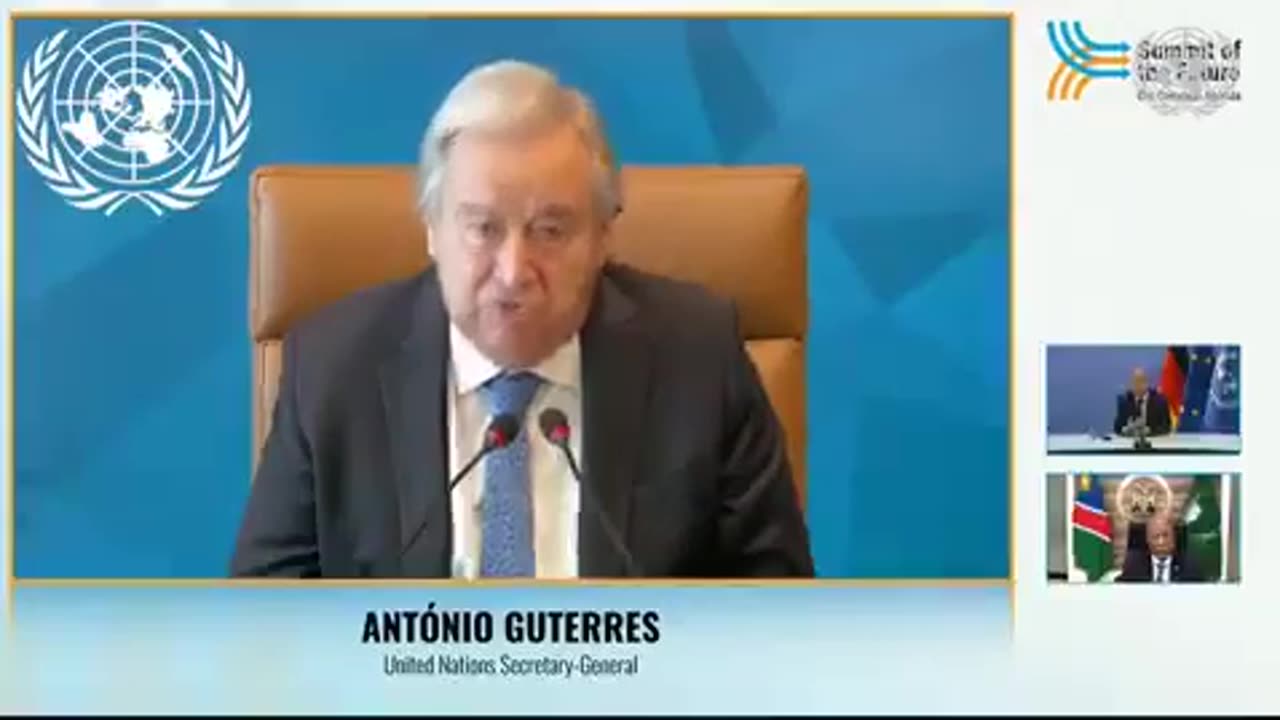Premium Only Content

Could the UN's increase in permanent members of the Security Council shed light on the ten horns?
UN Secretary-General Antonio Guterres' remarks seemed to align with the ideology of a New World Order or One-World Government. He advocated for a radical transformation of the UN Security Council, a restructuring of the global financial architecture, and an accelerated push to achieve Agenda 2030's Sustainable Development Goals (SDGs).
Guterres' statement that 'poverty and anger are at crisis levels' and that the SDGs are 'slipping out of reach' created a sense of urgency, implying that only a centralized, global authority can address these challenges. His call for '21st-century problem-solving institutions' to address '21st-century challenges' suggests a desire for a more unified, top-down approach to governance.
Furthermore, Guterres' criticism of AI development in an 'ethical and legal vacuum' and the international financial architecture being 'outdated and ineffective' implies a need for a more centralized, controlling authority to regulate these areas. This language echoes the sentiments of those who promote a One-World Government, where national sovereignty is sacrificed for the sake of global cooperation and control
-
 LIVE
LIVE
The Big Mig™
3 hours agoFBI Burn Bags, Hidden SCIF’s & Truth About Mar-A-Lago Raid
5,101 watching -
 1:50:11
1:50:11
Dear America
3 hours agoFBI Discovers THOUSANDS Russia Hoax Docs In “Burn Bags”!! + Pelosi EXPOSED For Insider Trading!!
103K76 -
 1:27:12
1:27:12
Tucker Carlson
3 hours agoTony Aguilar Details the War Crimes He’s Witnessing in Gaza
71.6K115 -
 LIVE
LIVE
Badlands Media
6 hours agoBadlands Daily: July 31, 2025
4,233 watching -
 2:16:31
2:16:31
Matt Kohrs
12 hours agoHUGE Earnings Beat, Inflation Data & New Record Highs || Live Trading Options & Futures
28.7K2 -
 19:44
19:44
Bearing
3 hours agoWorld’s CRAZIEST Feminist Wants AMERICANS to WAKE THE F*** UP 🦅💥
18.2K35 -
 47:09
47:09
Randi Hipper
1 hour agoUNITED STATES BITCOIN RESERVE IS COMING! WHITE HOUSE CRYPTO REPORT EXPLAINED
16.4K2 -
 LIVE
LIVE
Wendy Bell Radio
8 hours agoBurn Baby Burn
7,090 watching -
 1:02:45
1:02:45
Game On!
20 hours ago $3.53 earnedFootball is BACK! NFL Hall of Fame Game 2025
33.5K5 -
 1:55:56
1:55:56
FusedAegisTV
1 day ago3rd Party Partner Showcase Nintendo Direct! REACTION 7.31.2025 | FusedAegis Presents
25.4K